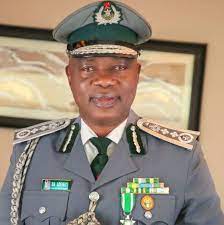
The Minister of Foreign Affairs, Yusuf Tuggar has reaffirmed Nigeria’s commitment to working closely with the Gulf of Guinea Commission (GGC) in tackling piracy and unlawful maritime crimes.
Tuggar disclosed this in a statement on Tuesday by Alkasim Abdulkadir, Special Assistant to the minister at the 6th Ordinary Session of the Assembly of State and Government of GGC held in Accra, Ghana.
According to him, the importance and significance of Gulf of Guinea to Africa cannot be over emphasised in respect to the promotion of a safe and secure region.
Tuggar said, “To this end, Nigeria takes this opportunity to reaffirm its commitment to the work and mandate of the GGC.
“As a demonstration to our commitment to the GGC, Nigeria’s National Assembly passed the Suppression of Piracy and Other Maritime Offences Act in 2019.
“To prevent and suppress Piracy, Armed Robbery and any other unlawful acts against any vessels unlawfully operating in the Gulf Region.
“Nigeria continues to deploy significant resources towards tackling piracy in the Gulf of Guinea. This has resulted in a significant containment of threats.
“We are proud to state that since 2022 till date, there has been no incident of piracy recorded in Nigeria’s territorial waters.”
He said that Nigeria is aligned with the theme of this year’s Summit titled: “Building a Secure and Prosperous Gulf of Guinea Region for Sustainable Development”.
He restated that Nigeria will remain committed to the goals, objectives and vision for the establishment of the Commission, and support for the work of the Secretariat.
He decried pursuit of many mechanisms with little resources to be distraction from the goals and objectives of the Commission, while urging the Assembly to approve strategies for accomplishing the goals.
He identified such goals to include safety and security, sustainable development, and protection of the environment.
He said, “Regarding safety and security, it is important to harmonise an effective mechanism backed by legally binding agreements, to roll back criminality, bunkering, illegal trade migration and unreported fishing.
“The internalisation of the Yaoundé code of conduct with our national legislation presents the region legally binding agreement for our water ways and seas.
“There is the need for timely exploration of the rich natural resources of our deep waters; the Commission requires more constructive approach to building relationships with international, regional and sub-regional partners.
“This is towards enhancing capabilities to adopt technologies and know-how for the exploration, and subsequent exploitation of the natural resources in the blue economy of the Gulf of Guinea.
“The Commission should safeguard the environment and protect the region from environmental degradation, guard against dumping of radioactive material and nuclear waste. Guarding against pollution by ships is another priority.”
He called for endorsement of the initiative of the Chiefs of the Navies and the Coast Guards in the establishment of the Combined Maritime task Force to promote synergy in the region.
He explained the implementation of suppression of piracy law resulted in the convictions and clear demonstration of its effectiveness in combating piracy and other maritime crimes.
The success, according to him, improved Nigeria’s international image and highlighted her determination to fight crime in her territorial waters and Gulf of Guinea.















